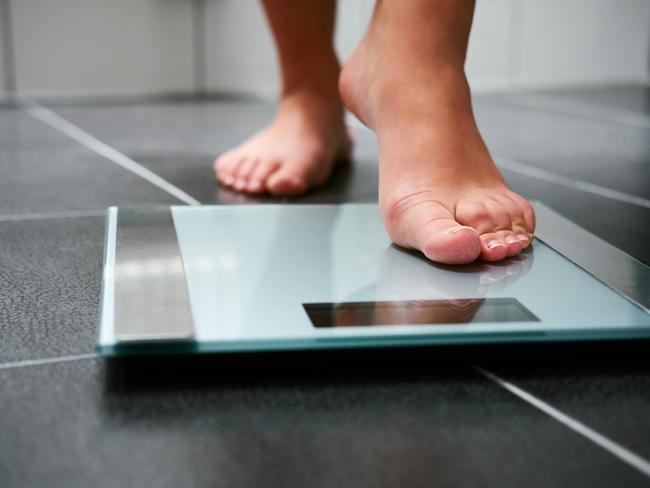Health of the Nation: Australia’s most obese age group revealed
Australians are gaining weight at a rapid pace, with one age group stacking on more kilos than the rest. Here’s why.
Young adults
Don't miss out on the headlines from Young adults. Followed categories will be added to My News.
Maintaining a healthy body weight during the transition into adulthood is instrumental in preventing heart disease and many cancers, while exercising will help stave off depression.
Young adults are the group gaining weight the fastest in Australia — and leaving the family home to start a life of work or study is often to blame.
But there are simple hacks that can be employed — like using smaller dinner plates to control portion sizes and losing weight in intervals rather than through crash dieting — to keep their waistlines in check.
“The period as you transition from adolescence, particularly to young adulthood is the highest trajectory of weight gain that most people experience across their lifetime,” University of Sydney dietitian Dr Stephanie Partridge said.
“After high school, they do tend to drop out a lot of the community sports that they were participating in.”

THE HARSH REALITY
By 2038, it is estimated 80 per cent of 18 to 30-year-olds will be overweight or obese.
“So certainly it’s a rising health concern in this age group,” Deakin University nutrition expert Dr Katherine Livingstone said.
Weight gain during this period could shave years off a youngster’s life expectancy — men who are obese at age 25 are projected to live 8.3 fewer years, and women, 6.1 fewer years.

A Swedish study found every extra kilogram of weight a man gains per year between the ages of 17 and 29 was associated with a 13 per cent increased risk of aggressive prostate cancer.
Dr Partridge said the reason for weight gain is this group often has little money or time, making energy-dense fast foods appealing.
Sugary drinks and alcohol also contribute, along with inactivity.
If these poor eating habits lead to diabetes by age 30, they will live 14 fewer years than those without the condition.
SMALLER PORTIONS
Dietitians recommend young adults buy smaller 18cm dinner plates to control their portion sizes.
If they fill half that plate with vegetables (not potato chips), dedicate a quarter of the plate to proteins, like meat or legumes, and a quarter to healthy carbohydrate foods like breads, rice or pasta, they will be on their way to good health.
“Things like smaller dinner plates make such a difference, it’s a physical reminder of portion sizes,” Healthy Wellbeing Queensland dietitian Dr Robyn Littlewood said.
Not getting fat in the first place is crucial because dieting makes you fatter in the long term.
University of Sydney’s Professor Nick Fuller’s research has found diets slow down your metabolism causing you, over time, to not only to regain the weight you lost but push you to gain a further 1.5kg each year.
“Some people often have a normal healthy body weight to start with and then drive themselves into an overweight or obesity range through yoyo dieting,” Prof Fuller said.
SET POINT WEIGHT
Once you stop growing in your 20s, your body will gravitate towards a set point weight.
“It’s the weight you remember bouncing back to after every bout of starvation or dieting,” explains Prof Fuller.
His research has found when you diet and lose 3kg or more your body will fight to get back to that set point weight by slowing down your metabolism, producing higher levels of hunger hormones, and turning off the hormones that tell you when you are full.
“The body is doing all it can to get you to put that weight back on,” Prof Fuller said.
“Even more disturbing is that these hormones don’t go back to their baseline when you put the weight back on. Your metabolism stays lower so you continue to burn fewer calories while resting which means you continue to put on a little bit of extra weight.
His research has found if your set point weight was 90kg, and you diet to get down to 80kg, over time you won’t just regain the 10kg you lost, your weight will go up to 92kg as it puts on extra fat to prepare for the next bout of starvation.
INTERVAL WEIGHT LOSS
The way to overcome these biological weight defences is to lose weight slowly and take a pause in weight loss every month to reset your set point weight, says Prof Fuller.
To achieve success you must lose around half a kilogram a week for a month then maintain that new weight and lose no more the next month. The following month lose another half a kilogram a week then stop again.
“So it’s a month on, a month off, a month on and typically over the course of 12 months it’s allowing you to lose 11 to 12 kilos,” Prof Fuller said.
“It takes time to restore the damage you may have done through dieting. Metabolism doesn’t restore overnight.”
RETRAIN YOUR FOOD BRAIN
Dietitians suggest young adults eat from big to small throughout the day because research shows we burn calories 2.5 times more efficiently in the morning than the evening.
They should opt for fruit and nuts when snacking, not processed high-sugar foods.
And with every meal, include a source of whole grains, a source of protein and a source of good fat like olive oil and vegetables.
Originally published as Health of the Nation: Australia’s most obese age group revealed



